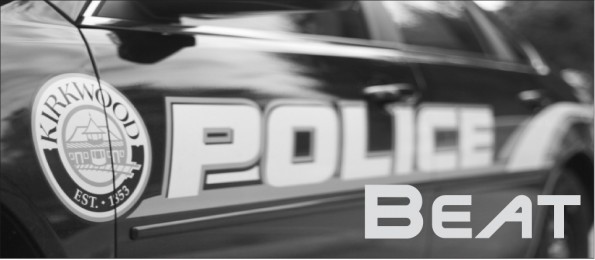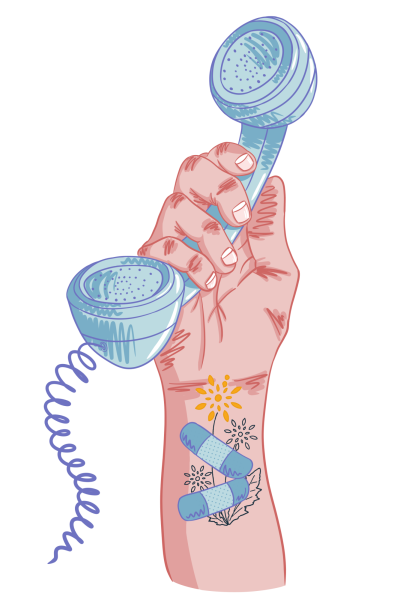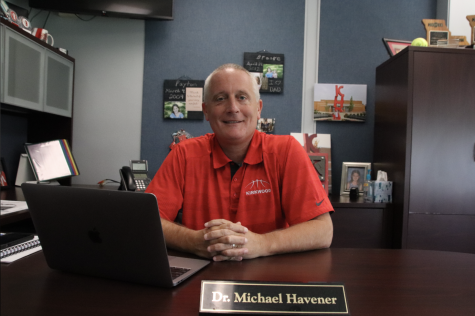Charity Issue: Never an accident
Chris worked a full-time job on top of being a college student at Harris-Stowe State University. He was making a left turn at an intersection when a drunk driver ran a red light and crashed into the driver’s side of his vehicle.
“Is my baby okay?” Patsy Pate asked the paramedics.
On Jan. 5, 2009, her youngest child of eight children, Chris, kissed her goodbye and said he would be right back after checking out a “new spot” for his upcoming birthday party. Chris worked a full-time job on top of being a college student at Harris-Stowe State University. He was making a left turn at an intersection when a drunk driver ran a red light and crashed into the driver’s side of his vehicle. MADD works to end drunk driving, support victims and prevent underage drinking.
“When authorities found me, I was unresponsive on the passenger’s side of the car,” Chris Pate, survivor and underage drinking prevention specialist for Mothers Against Drunk Driving (MADD), said. “A mother can always feel when something isn’t right. When [she] arrived at the hospital, [she was] taken back into a room. There sat a nurse, police officer and [hospital chaplain]. They explained that because of the injuries that had occurred, I would die that night.”
Chris had sustained a traumatic brain injury, broken collarbone and collapsed lungs as a result of the crash. He was put into a medically-induced coma and did not wake up until early March.
“Life for me began again,” Chris said. “I had to learn my name, how to write, how to walk, how to talk and how to feed myself. I always say that St. Mary’s Hospital taught [me] how to become Chris again.”
After his rehab, Chris said he was given a list of jobs and was encouraged to become a Walmart greeter because of how well he spoke. He told professionals at the rehabilitation center he was going back to school, even though they told him it would be impossible because of lingering disabilities from the crash. Ultimately, Chis was unable to re-enroll into college because he had an unpaid balance remaining from the semester of the crash.
“I was on disability at that point,” Chris said. “I didn’t have a way to pay the balance. I sent medical records to try and justify why I was unable to withdraw.”
MADD has over 600 state organizations, chapters and community action teams across the U.S. and in each province of Canada. Wherever there are victims, MADD’s goal is to be there to help them. Chris said he later learned from his mother that Henry Givens, the president of Harris-Stowe State University, and his wife had sat with him in the hospital every Sunday during his recovery. While at a restaurant on Mother’s Day, he said he was given Givens’ card by the staff and was told that Givens was looking for him.
“My mom told me to ‘call the man,’” Chris said. “I was invited to the school. After [Givens] had learned of my desires, he forgave my balance and gave me a full scholarship to return back to school.”
Chris said the brain trauma from the crash made college extremely difficult for him. He said he had no recollection of his previous schooling and had to teach himself how to learn.
“With accommodations, I ended up completing my degree in the fall of 2014 [graduaing] Cum Laude,” Chris said. “Through my faith and hard work, I was allowed to achieve.”
MADD supports victims and their families by helping them find an attorney, being their advocate and helping them obtain resources from donations. The organization also has victim impact panels for the offenders. They are able to listen to victims and first responders to the scene of a drunk driving crash. Currently, Chris speaks at schools around Missouri, telling his story. He also said he teaches parents how to talk to their child about the danger and impact driving impaired can cause. One school Chris speaks at is KHS.
“He did everything right, you know?” Gina Woodard, KHS health teacher, said. “I think he is one of those people who has found meaning and purpose and has realized that his story is important to tell.”
Woodard said one of the biggest lessons she emphasizes to her students is that it is not just drinking and driving that is dangerous. Drinking by itself is dangerous.
“When you have an underdeveloped brain, alcohol is dangerous,” Woodard said. “We talk about how you can die from drinking too much in one sitting. We’ve had multiple Kirkwood students go to the ER on a weekend. Passing out is not ‘sleeping it off.’ Passing out is a medical emergency.”
Woodard said students need to be able to identify the signs of a medical emergency and know what is normal and what is not. She said she also tries to teach kids how to feel comfortable asking for help.
“[At] some point in [students’] life [they] will probably get in trouble, that goes away,” Woodard said. “Having to deal with the death of a friend knowing [they] could’ve, should’ve, would’ve done something and didn’t, doesn’t go away.”
Both Chris and Woodard said that drunk driving is one hundred percent avoidable. Being proactive and planning ahead can protect your own health and the lives of other people.
“I don’t call it an accident because if someone [chooses] to drive impaired, that’s no accident,” Chris said. “They made the decision that caused that. That’s why MADD embraces the term ‘crash.’”

(Audrey Turley)
According to MADD.org, a drunk driving accident occurs every 52 minutes. You can donate to MADD and their cause through their website. You can also sign up to volunteer online. If you have any further inquiries about MADD or how you can contribute or seek help, all of their information is on their website madd.org along with a 24/7 help hotline: 877-MADD-HELP.
Your donation will support the student journalists of Kirkwood High School. Your contribution will allow us to purchase equipment and cover our annual website hosting costs.
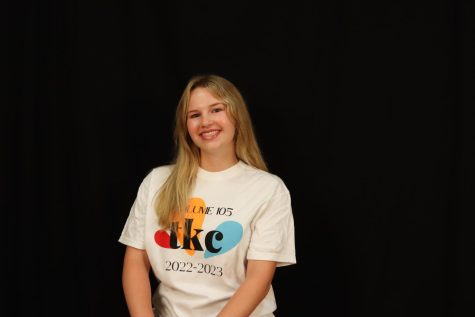
She/Her
Hobbies and Interests: golfing, playing volleyball, eating ice cream, listening to music, driving around
Favorite song: Projects by Moneybagg...
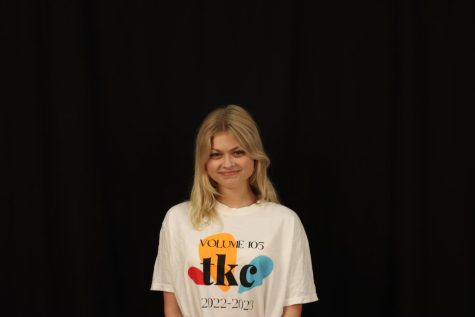
She/Her
Hobbies and Interests: font enthusiast, thrift shop god, dog enjoyer
Favorite song: What is Life by George Harrison
Favorite Quote:




